Today we’re going to talk about how long it’ll take for an ex to lose feelings after a breakup.
Here’s the reality, it’s impossible to pinpoint an exact time frame on how long it’ll take for an ex to lose feelings for you. All reputable research has the timelines ranging anywhere from 3 months to 1 and a half years.
I’d actually like to explore why this is by covering,
- Why no one can agree on how long it’ll take for an ex to lose feelings
- Why there is no “one size fits all” answer to this
- The #1 thing I see that causes exes to lose feelings
- A real case study of someone who lost feelings telling you what it was like for them
Let’s get right to it!

What Are Your Chances of Getting Your Ex Boyfriend Back?
Take the quizNo One Can Seem To Agree On How Long It Will Take For An Ex To Lose Feelings
I’ve done a lot of research on this in the past few months and no one can seem to agree.
For instance, a few months ago I went to various sources to figure out how long it’ll take to recover from a breakup,
- I looked at my own polling data
- Opinions from online forums
- Scientific research,
- Pulled research artificial intelligence (LLM’s.)
Ultimately what I found left me more confused than when I started.
- For instance, a 2007 study suggested three months
- A 2017 survey indicated 18 months
- And a TED talk I came across proposed 11 months.
- My own internal research pointed to a span of 5 to 7 months
- Cortisol studies I examined hinted at 6 months
- ChatGPT posited durations ranging from 18 months to 3 years or as short as 3 months
- While Google’s Generative AI offered estimates between 3 and a half months to 1 and a half years.
Here’s the thing. Everyone who comes to read this article wants a “one size fits all” answer. They want me to sit up here and say,
“Ya, it’ll only take an ex five months before they lose feelings.”
But that doesn’t exist because every single relationships is incredibly unique.
Why, though?
Why There Is No “One Size Fits All” Answer To This
Well, the truth is that every relationship is unique just like every breakup is unique just like every post breakup period is unique.
Consider the following factors as being the core ones that impact your exes feelings.
- Nature of the Relationship: The depth and duration of the relationship play a significant role. A short-lived, casual relationship might lead to quicker emotional detachment than a long-term, deeply intimate one.
- Reason for the Breakup: If the breakup was due to external factors like distance or timing, feelings might linger longer. In contrast, a breakup due to incompatibility or betrayal might lead to quicker emotional detachment, although feelings of hurt or anger might persist.
- Personal Resilience: Some individuals have a higher emotional resilience and can move on more quickly, while others might ruminate and take longer to heal.
- Support System: Having a strong support system in the form of friends, family, or therapy can help individuals process their emotions and move on more quickly.
- Rebound Relationships: Some people jump into new relationships soon after a breakup. While this might seem like they’ve moved on, it’s not always the case. Rebound relationships can sometimes be a way to mask unresolved feelings.
- Personal Beliefs: Cultural, religious, and personal beliefs about relationships and love can influence how long someone mourns the end of a relationship.
- Closure: The sense of closure—or lack thereof—can impact how long feelings linger. If there were unresolved issues or unanswered questions, it might take longer for someone to move on.
- Individual Differences: Every individual is unique. Some people might take weeks to move on, while others might take months or even years. There’s no set timeline.
- External Factors: Stressors such as work, health, or family issues can either distract someone from their feelings or exacerbate them.
- Hope: Sometimes, one party might still have hope of reconciliation, which can prolong feelings.
But like I said, everyone always wants more concrete timelines.
So I went out and placed each one of these factors on a timeline to give you a general idea of how long it’ll extend the “feelings” portion of the post breakup period for an ex.
Check this out,
This is a graphic I put together that essentially divides each of the factors above into four different categories,
- Intermediate: Which are the factors that immediately impact the duration of lingering feelings
- Short Term: Which are the factors that impact the duration of lingering feelings in the short term (1-3 months post breakup)
- Medium Term: Which are the factors that impact the duration of lingering feelings in the medium term (3-6 months post breakup)
- Long Term: You get the idea here by now, long term feelings duration (6 – 12+ months post breakup)
Intermediate
Will include the following factors:
- Nature of the Relationship: The depth and duration of the relationship play a significant role. A short-lived, casual relationship might lead to quicker emotional detachment than a long-term, deeply intimate one.
- Reason for the Breakup: If the breakup was due to external factors like distance or timing, feelings might linger longer. In contrast, a breakup due to incompatibility or betrayal might lead to quicker emotional detachment, although feelings of hurt or anger might persist.
Short Term:
- Personal Resilience: Some individuals have a higher emotional resilience and can move on more quickly, while others might ruminate and take longer to heal.
- Support System: Having a strong support system in the form of friends, family, or therapy can help individuals process their emotions and move on more quickly.
- Rebound Relationships: Some people jump into new relationships soon after a breakup. While this might seem like they’ve moved on, it’s not always the case. Rebound relationships can sometimes be a way to mask unresolved feelings.
Medium Term:
- Personal Beliefs: Cultural, religious, and personal beliefs about relationships and love can influence how long someone mourns the end of a relationship.
- Closure: The sense of closure—or lack thereof—can impact how long feelings linger. If there were unresolved issues or unanswered questions, it might take longer for someone to move on.
Long Term:
- Individual Differences: Every individual is unique. Some people might take weeks to move on, while others might take months or even years. There’s no set timeline.
- External Factors: Stressors such as work, health, or family issues can either distract someone from their feelings or exacerbate them.
- Hope: Sometimes, one party might still have hope of reconciliation, which can prolong feelings.
Of course, there is one factors that I haven’t placed on the timeline. Arguably the most important factor.
The #1 Factor That I Think Can Cause An Ex To Lose Feelings
So, one of the important things that I’ve learned over my years of running ex-boyfriend recovery is the fact that our most common attachment pairing usually revolves around the anxious attachment style and the avoidant attachment style.
Many of our clients exhibit anxious attachment tendencies, which means their greatest fear is being abandoned.

What Are Your Chances of Getting Your Ex Boyfriend Back?
Take the quizAnd, of course, they usually come to me when they’ve been abandoned. This leads them to act incredibly anxious, grow desperate, overcrowd their ex, and so on.
On the other hand, their exes, many of whom they’re trying to get back, have avoidant tendencies.
The avoidant individual wants nothing more than to be alone. They enjoy their independence. And, if they’re in a relationship where they feel overcrowded, they perceive it as an attack on their independence.
The result is that they end up leaving. I even went as far as creating an interesting graphic that I call the “Avoidant Death Wheel.”
It has eight main stages.
- An avoidant person starts by wanting someone to love them.
- Then they find someone and believe their troubles are over.
- Next, they begin noticing some worrying signs.
- This leads them to consider leaving,
- And eventually, they decide to leave the relationship.
- After leaving, they feel elated.
- However, over time, they start to feel lonely
- They wonder why they can’t ever find the right person.
They get caught in this loop, moving from one relationship to the next. What’s intriguing is how this contrasts starkly with the anxious individual’s experience during a breakup.
So, for example, while I created the Avoidant Death Wheel, I also created the Anxious Death Wheel.
What is fascinating about these two is that they are mirror images of one another. And their death wheels bear this out.
- The Anxious Death Wheel starts off the same way the Avoidant Death Wheel does. The anxious person wants someone to love them.
- Then they find someone and believe their problems are over.
- Where they start to differ is with stage three. They decide, “I’m going to make this person my entire focus. I cannot screw this up. I’m going to put everything I have into this relationship.” The Avoidant person perceives this as overcrowding. That is why the Avoidant person starts noticing some worrying things in their death wheel.
- Then, after the Avoidant person starts to think, “Hey, I think I need to leave this relationship,” the Anxious person recognizes something is off and they start worrying even more.
- They sense that their partner is going to leave them.
- And then, of course, the Anxious person actually gets left in the relationship.
- Now, where we see another convergence is when the Anxious person decides they’re going to do everything they can to possibly win this person back. The Avoidant person, after going through a breakup, enters a honeymoon period. They’re incredibly happy that they’ve regained their independence, which they value highly.
- And then, of course, if things don’t go well for the Anxious person, they spiral.
They feel incredibly alone and wonder, “Will I ever find someone?”
They continue in this loop from relationship to relationship.
This is why you often hear people lament, “Why is this always happening to me? Why can’t I ever find love?” The common theme is that they’re attracting the wrong type of individual.
The Anxious person is drawn to the Avoidant person, and the Avoidant person is drawn to the Anxious person, making them quite miserable together. While I believe this is a troubling pairing, it’s essential to understand that this pairing is one reason why exes can lose feelings.
We know from our internal polling that most of our clients’ exes tend to have Avoidant attachment styles.
And one of the number one ways that you can make someone who’s an Avoidant lose feelings for you is to overcrowd them, to constantly ask for reassurance, to constantly try to win them back.
This is why things like the No Contact Rule are effective because it gives the Avoidant the space they need to ultimately miss you. An Avoidant person doesn’t miss you until they think you’ve moved on from them.
So, for me, the number one factor that I think can cause an ex to lose feelings for you is your inability to move on. I know that sounds counterintuitive, but the reality is there are three things you need if you want an ex to have feelings for you again. Number one, you need to start learning how to process your own grief in a healthy way.
Avoidants process their grief in an unhealthy way; they go inwards. In contrast, anxious people process their grief in an unhealthy way; they try to solve the problem. They’re great problem solvers, but sometimes problems can’t be solved right away.
- Taking a step back, I believe, can go a long way.
- Another thing an anxious person really needs to do is find wholesome distractions. Distractions that will enrich their lives. Something they care about more than their ex. This is the key component and the number one thing I constantly preach. Yet, it’s also the number one thing most people disregard and do not do. They’re unable to find something else that takes precedence over their ex.
- The third thing you can do to ensure your ex doesn’t lose feelings for you is to reconnect with your passions and interests.
One of the interesting things I’ve learned about anxious people is they tend to have very codependent tendencies. Their entire world revolves around their ex.
So, if they don’t get their ex back, they start thinking their entire solar system will blow up, and they double down on making their entire world about their ex. Yet, if the entire world is about their ex, that means they have no personal interests or passions.

What Are Your Chances of Getting Your Ex Boyfriend Back?
Take the quizAll of the ex’s passions and interests become their own. By moving on and reconnecting with your personal passions and interests, you indicate to that ex that you are your own individual, not just a carbon copy of them.
You’re not just doing what they want you to do. To prove that point, I actually have a case study I’d like to show you.
A Real Case Study Of What It Took For A Client To Lose Their Feelings For An Ex
(Quick Little Aside: I also used this case study in my article on how long does it take to get over a breakup. So, this is word for word what is featured in that article but that doesn’t mean you should skip it. It literally makes all the points I made above perfectly.)
This is a real case study who basically proves the points I’ve been making,
Ok ERP fam, I’m finally calling myself a #successstory I didn’t get my ex back – I upgraded, big time!
On 6/21/23 I hit 6 months of INC from my ERP ex. It has felt like an absolute detox, I am so happy all his toxicity and manipulative tendencies are OUT of my life for good. I have missed him, sometimes terribly, but the relief is bigger.
I have made leaps and bounds as a person since I started the ERP program in August of 2021. I have been in consistent therapy working through my own trauma and learning healthier habits. I have cultivated a flourishing friend group who I can be real with, who I know loves me and has my back. I have left my workaholism behind and have found balance to bring rest, dance, social life, travel and joy back into my life.
AND the cherry on top, I’m in a committed relationship with a wonderful new man, . Whereas my ERP ex never told me he loved me, never gave me any emotional security and balked at any future talk, here has been my experience with :
- Since day one, he has been actively pursuing me, planning dates, making time for me.
- 2 months in, HE initiated the conversation about being exclusive.
- 4 months in, HE initiated the conversation about labeling ourselves boyfriend and girlfriend
- One week after that, HE told me he loved me for the first time.
- HE has been the initiator of planning trips together this summer, fall and beyond, and has invited me to spend Thanksgiving with his family (out of state).
The list goes on. I’m calling myself a success story now because I am someone who did not think myself capable of a healthy, secure relationship. I had resigned myself to accepting insecure, neglectful situations and probably never getting married or having kids because I didn’t believe I was worthy of it or that it was possible for me. The last 5.5 months with have blown my expectations out of the water. This is someone I can see myself with indefinitely, who treats me like a treasure, with attentiveness, love and dignity. Even if things don’t work out with , my standards are forever raised and I will NEVER go back to accepting the sh*t my ERP ex, or any of my exes, have put me through.
My advice: Focus on the parts of this program that help develop you as a person. Read the recommended books. Work hard on your trinity. Go to therapy if you can afford it. Keep a journal. Lean on community – cultivate deep friendships with people who aren’t your ex. Life is short – don’t give too much of yourself or your time to people who aren’t worthy of it, because just around the corner there may be someone who IS worthy of it, and YOU are definitely worthy of it!
It’s that last part, the part I put in quotes above that really sticks out to me,
The client highlighted the effectiveness of reading recommended books, focusing on the ‘Trinity’ concept, seeking therapy (if affordable), maintaining a journal, and fostering deep friendships outside of their previous relationship. They emphasized not investing too much time and energy into unworthy individuals, as better prospects might be just around the corner.
This case study echoes the three core strategies we advocate for efficient recovery:
- Adept grief processing
- Find wholesome distractions
- Reconnecting with personal passions and interests.

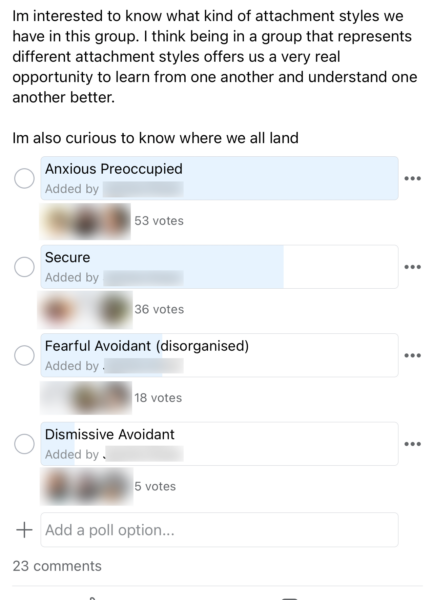
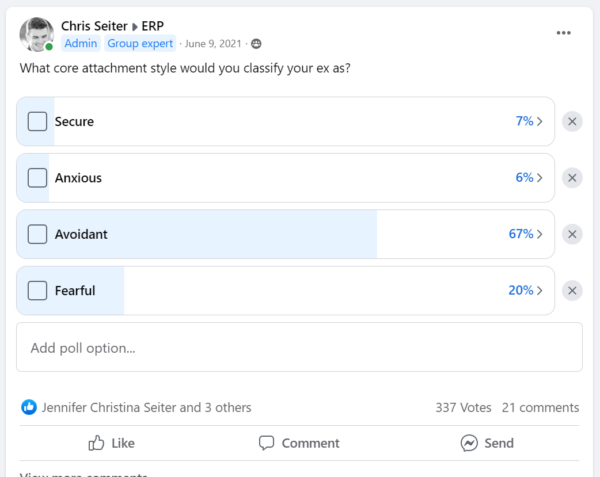
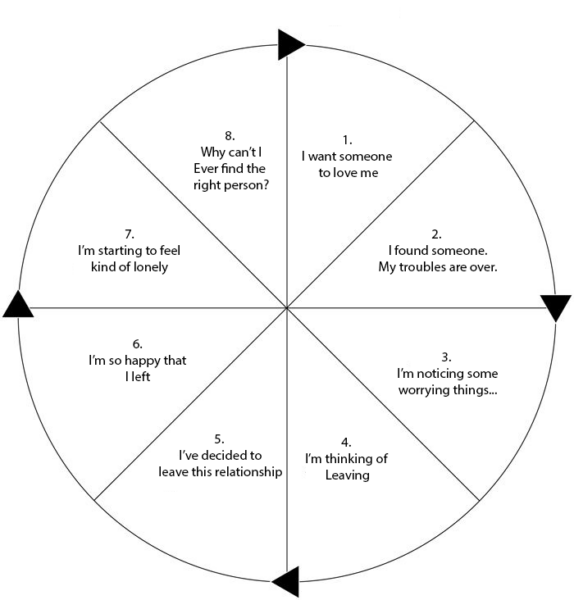
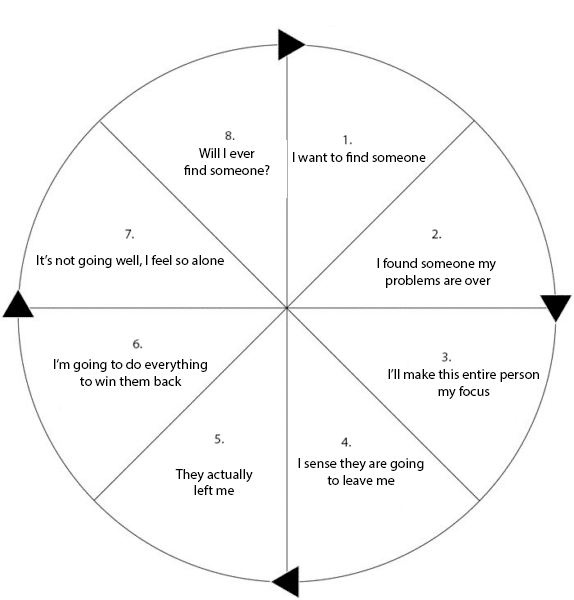
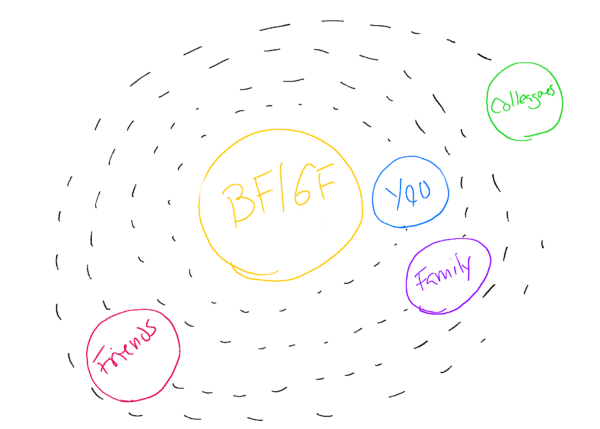
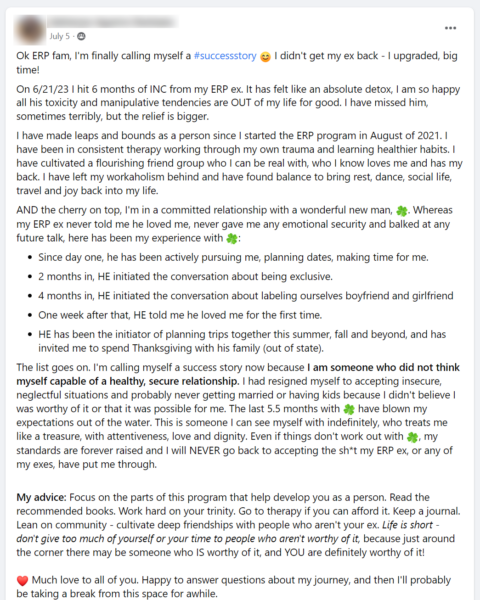
Elise
September 15, 2024 at 9:24 pm
Hello,
I have a question. Mij ex and I broke up around 13 months ago now. It was a soul crushing end of the relationship. We just came back from holiday, he told me he was feeling depressed and straight after that he broke up with me. He told me he was already out of love with me for over 8 months. I did everything I could to focus on myself. I was always kind when he contacted me, but never initiated contact. I knew that last weekend (after a year) I would see him at an event. Together with a mutual friend I walked up and said hi to him. I was very nervous but the conversation went well. His family also walked up to me and became a bit emotional to see me again.They told me they missed me. After a short chat I went back to my friends. When I went to grab a drink he was walking around me. So I walked passed him and said that if he ever wanted to grab a coffee to catch up he must let me know. He said he would love that.
However today (2 days later) he messaged me saying that he thought about the coffee Idea, and that he is not into it anymore. It brings up to many emotions and seeing me actually cost him more energy now than that it gives him. I said it was fine and he can always contact me for a coffee. He told me it was better to have no contact, only on the moments we see eachother in real life.
I have no clue what to make from this behavior. If he has moved on, or not.. and what the best thing is to do
Z
December 9, 2023 at 7:05 am
Pretty amazing stuff. After a very long break from dating. I’ve realized I missed a WHOLE LOT of things. My first foray, was enlightening…to say the least. I read this site well over ten years ago and it helped me immensely with that situation. Now I’m back here wondering and catching up with the “modern”dating world. I wish everyone the best of luck out there!